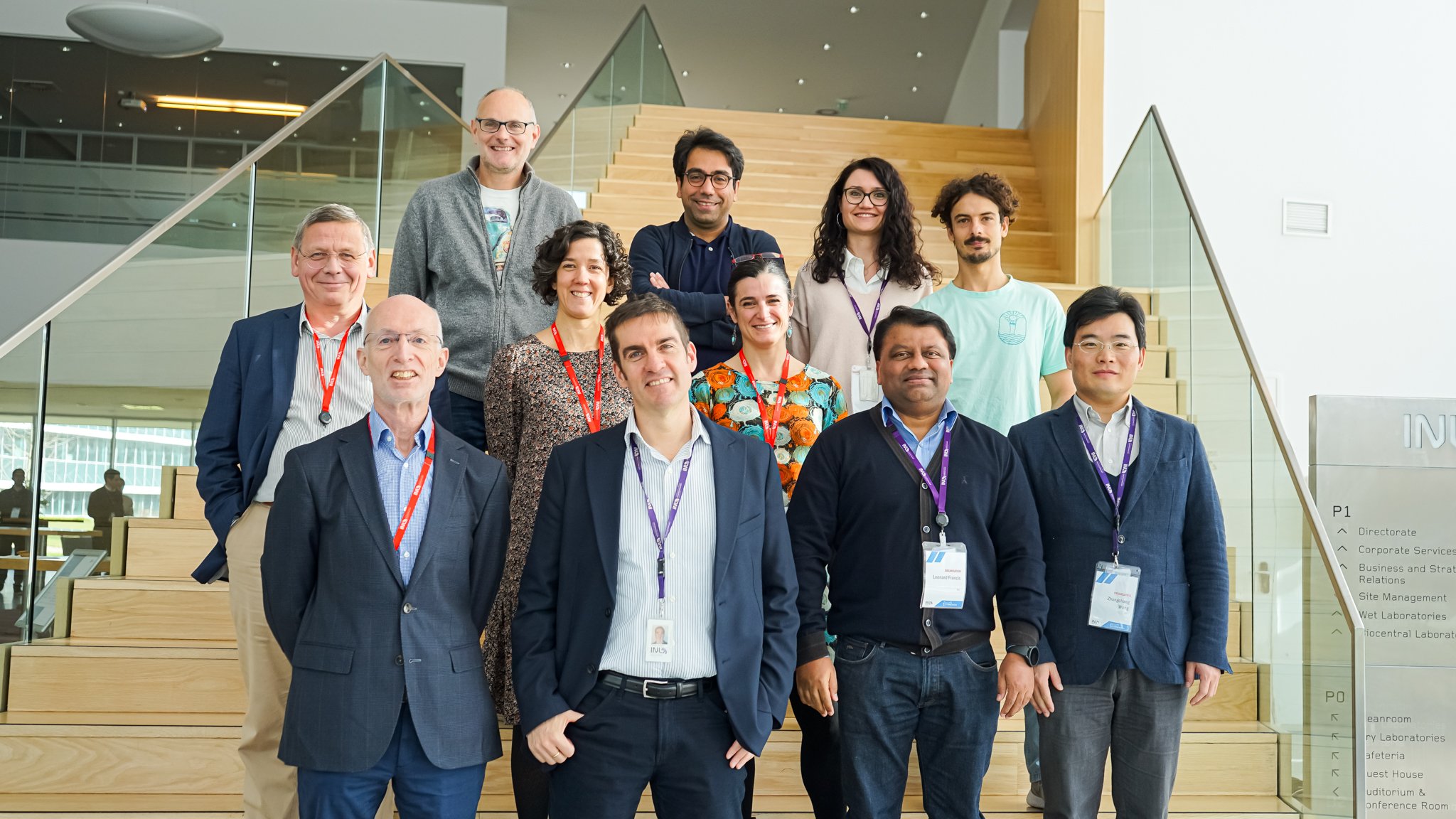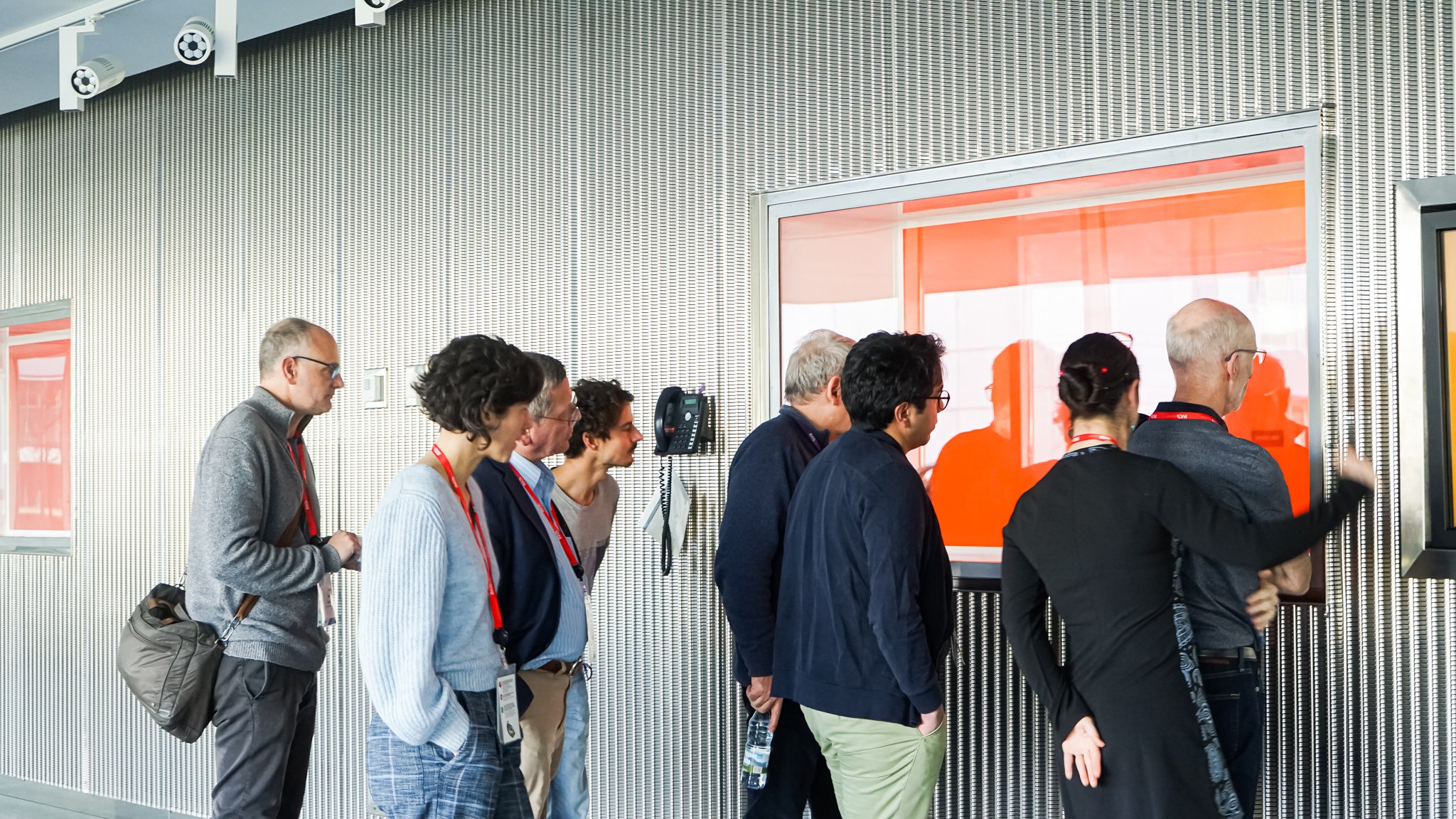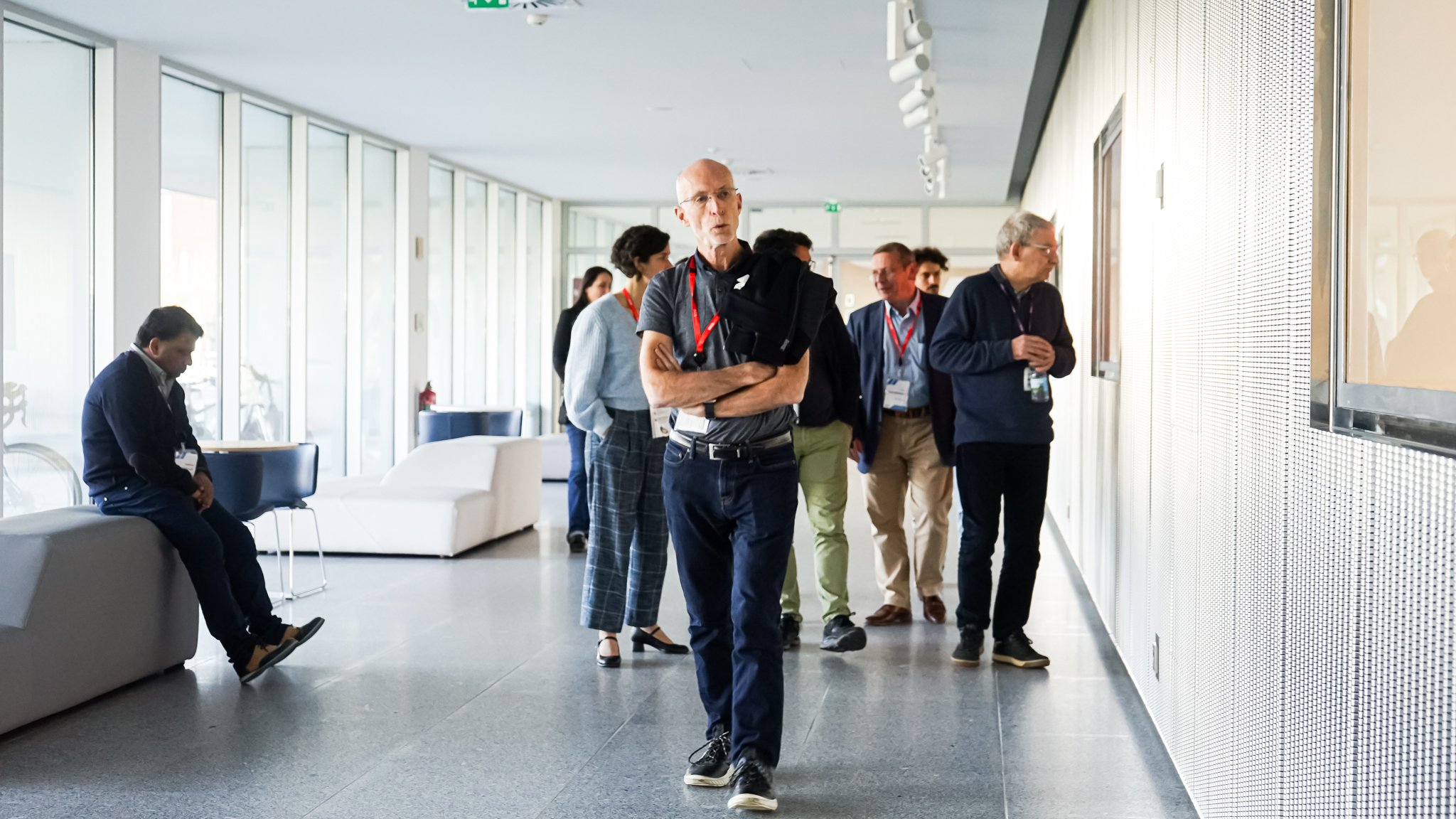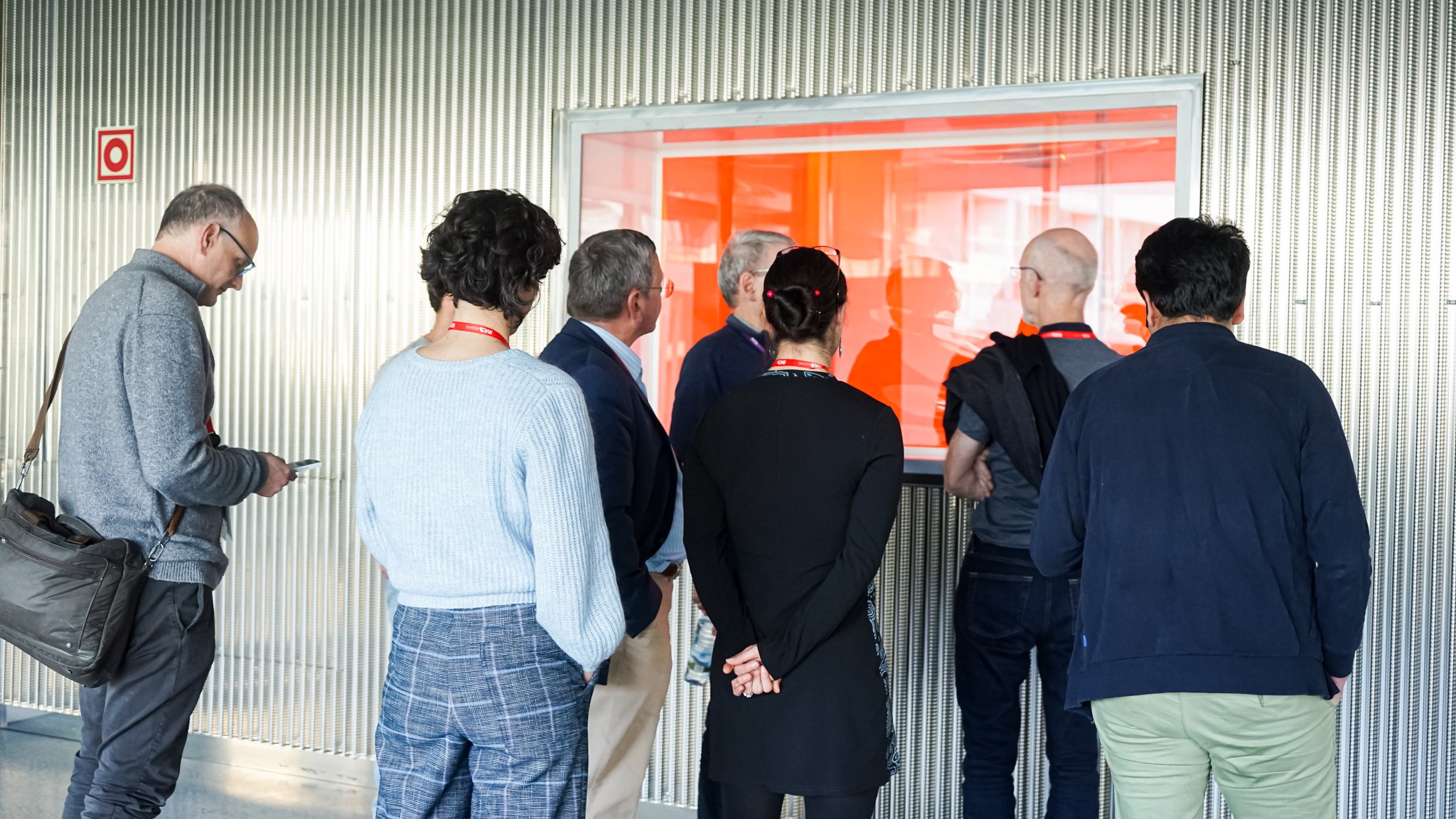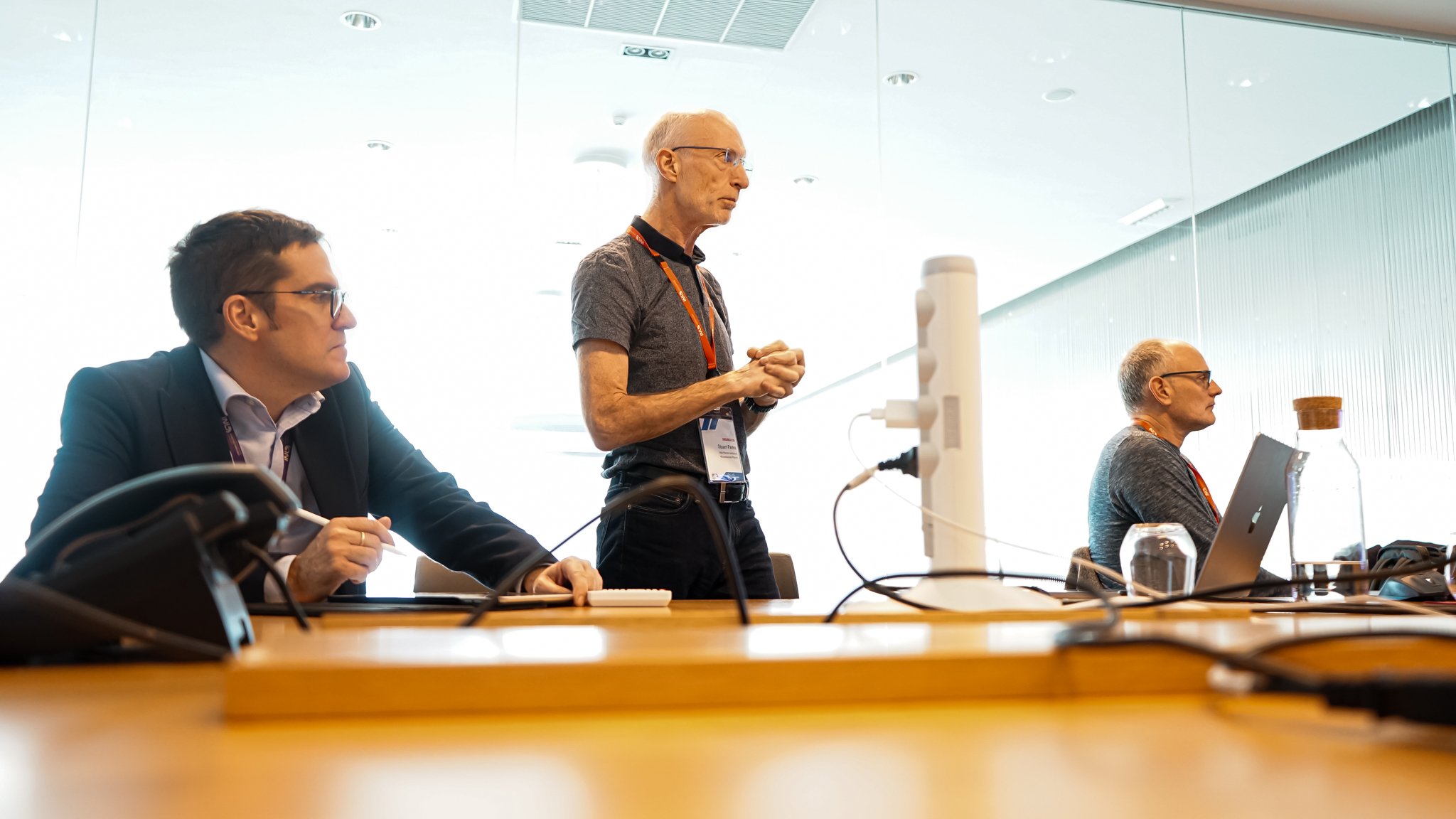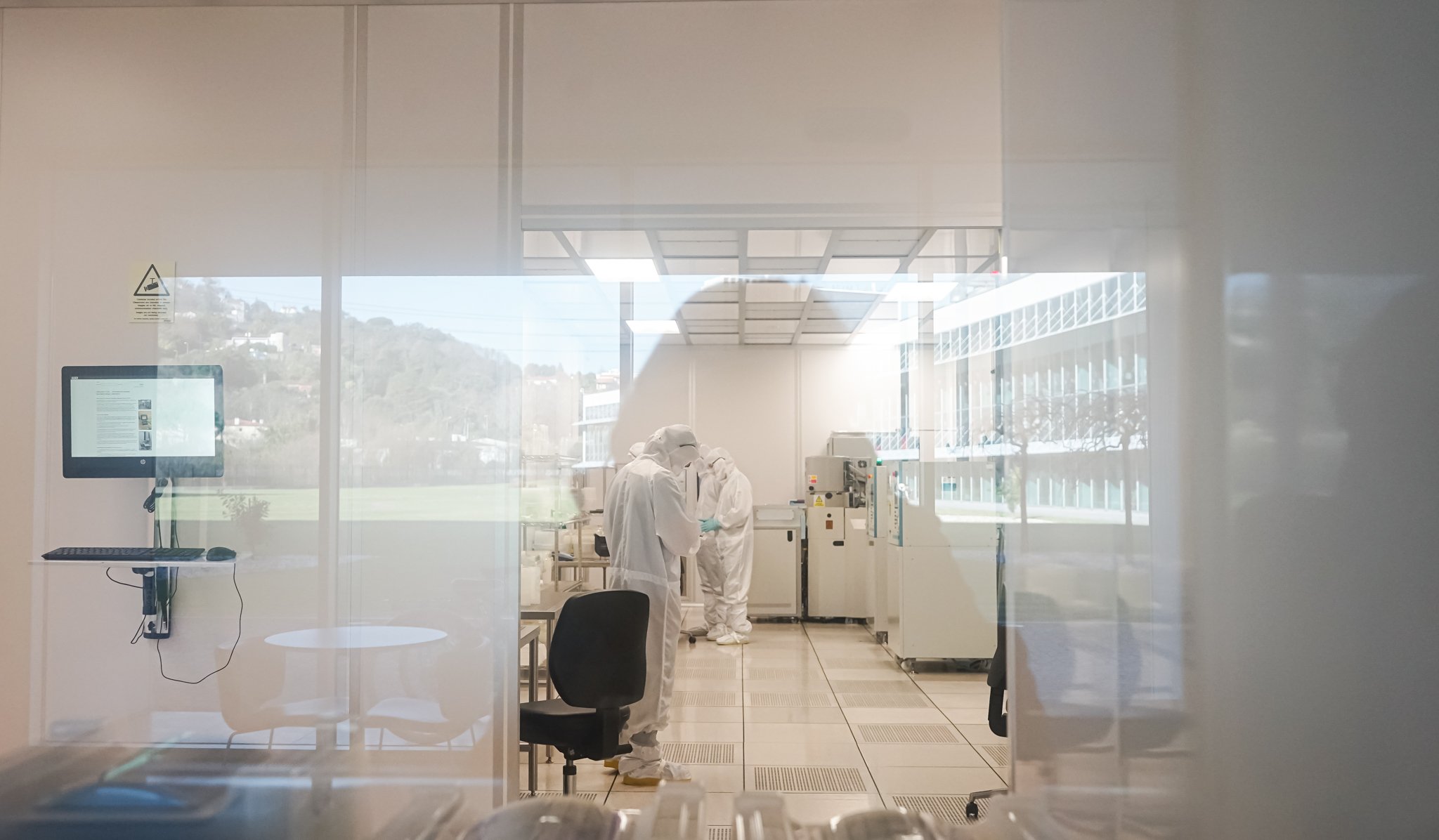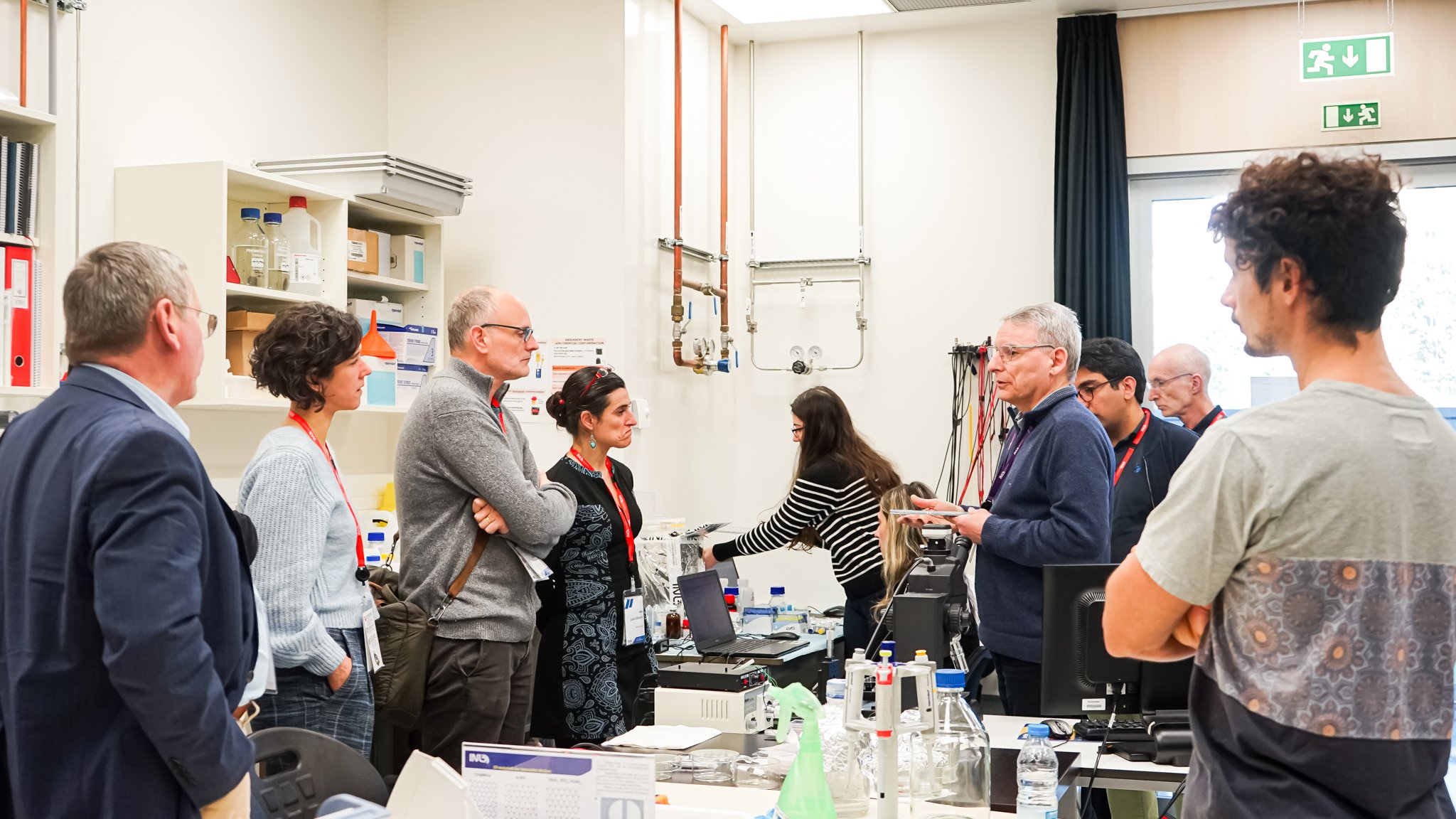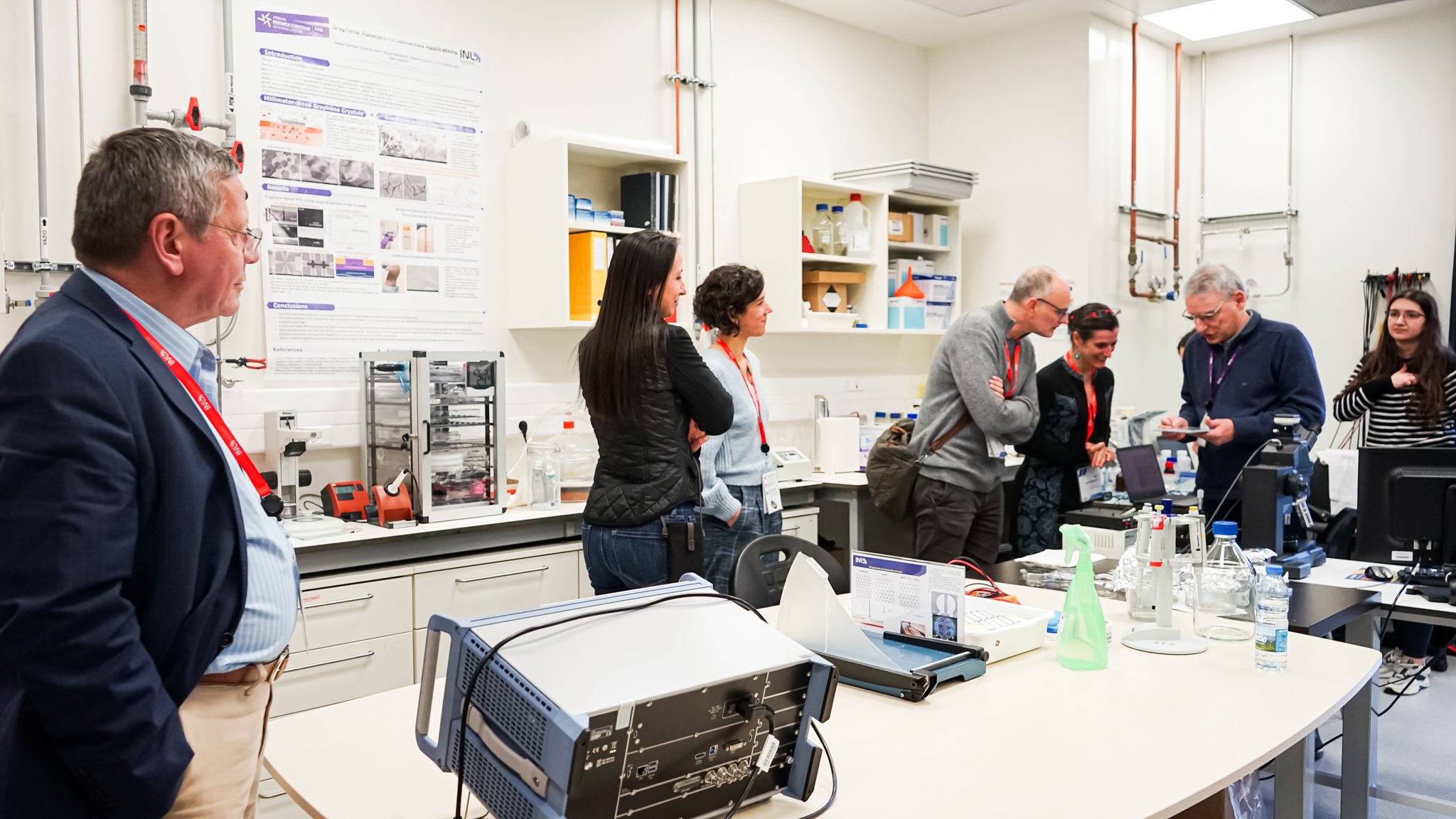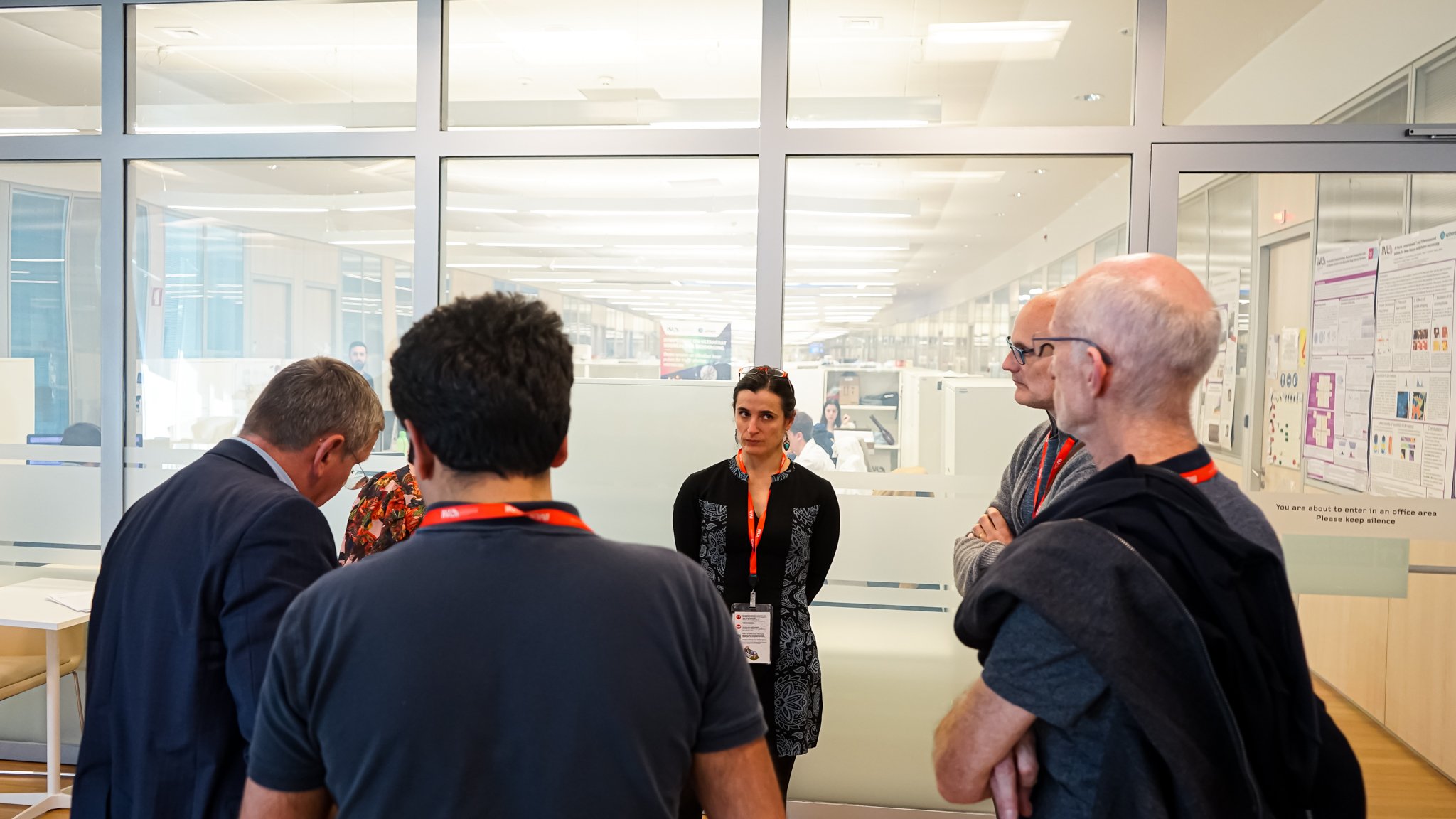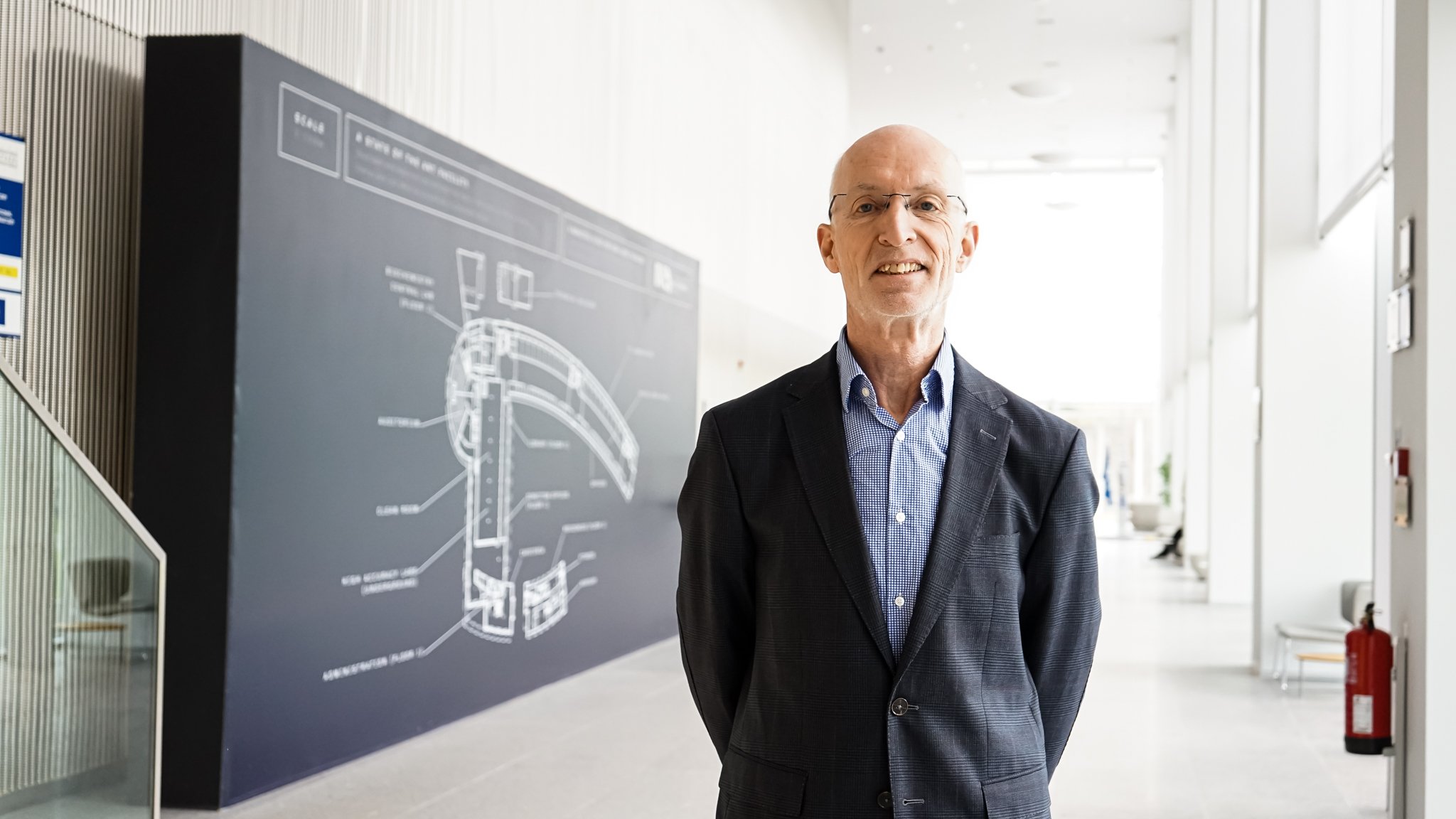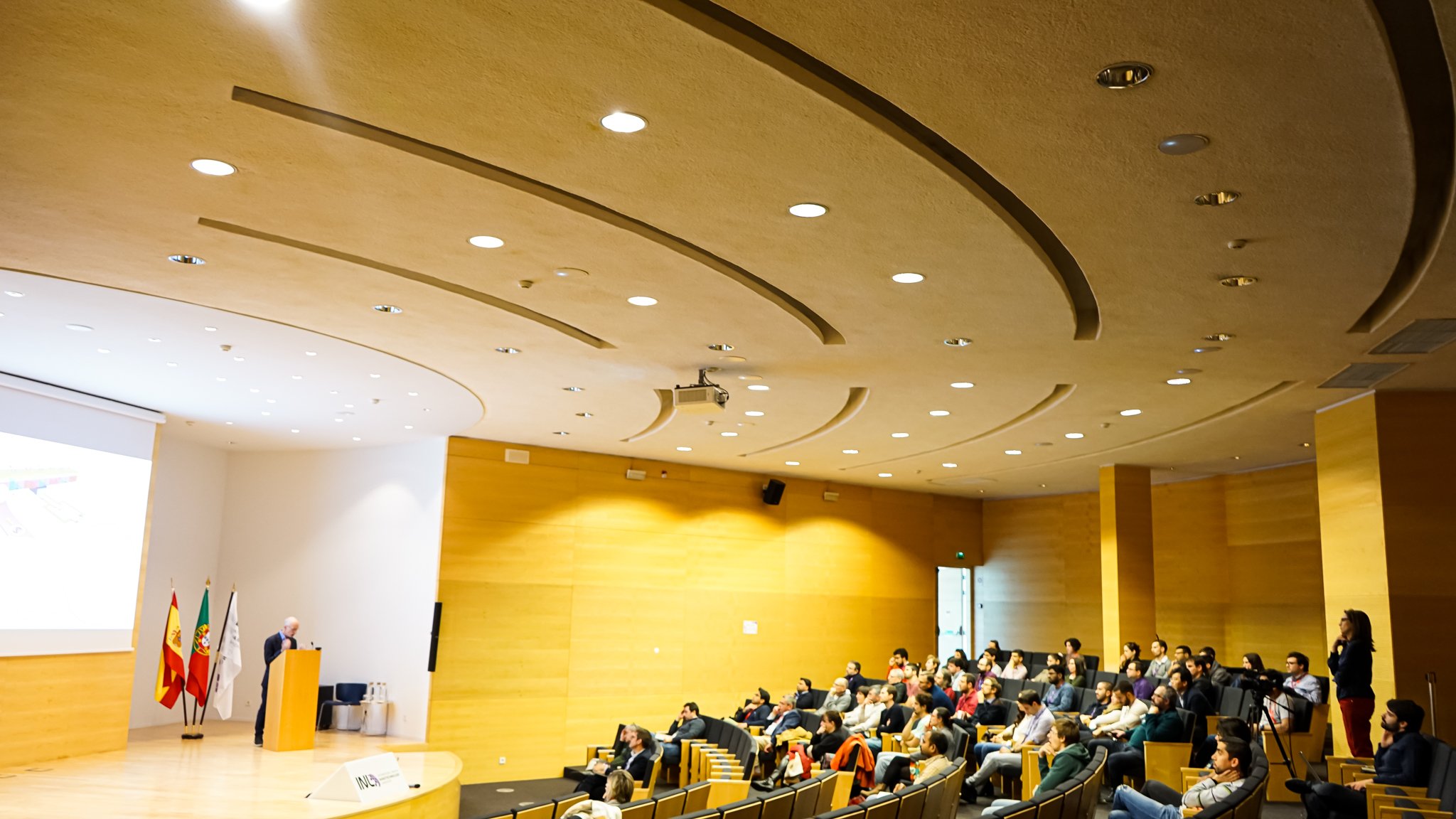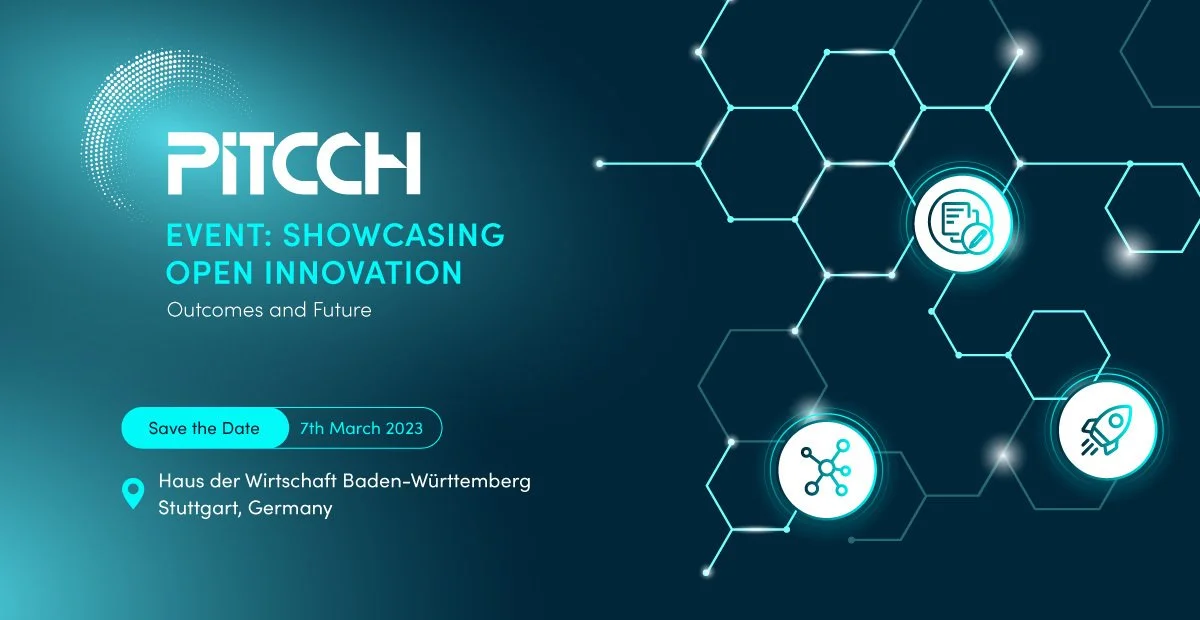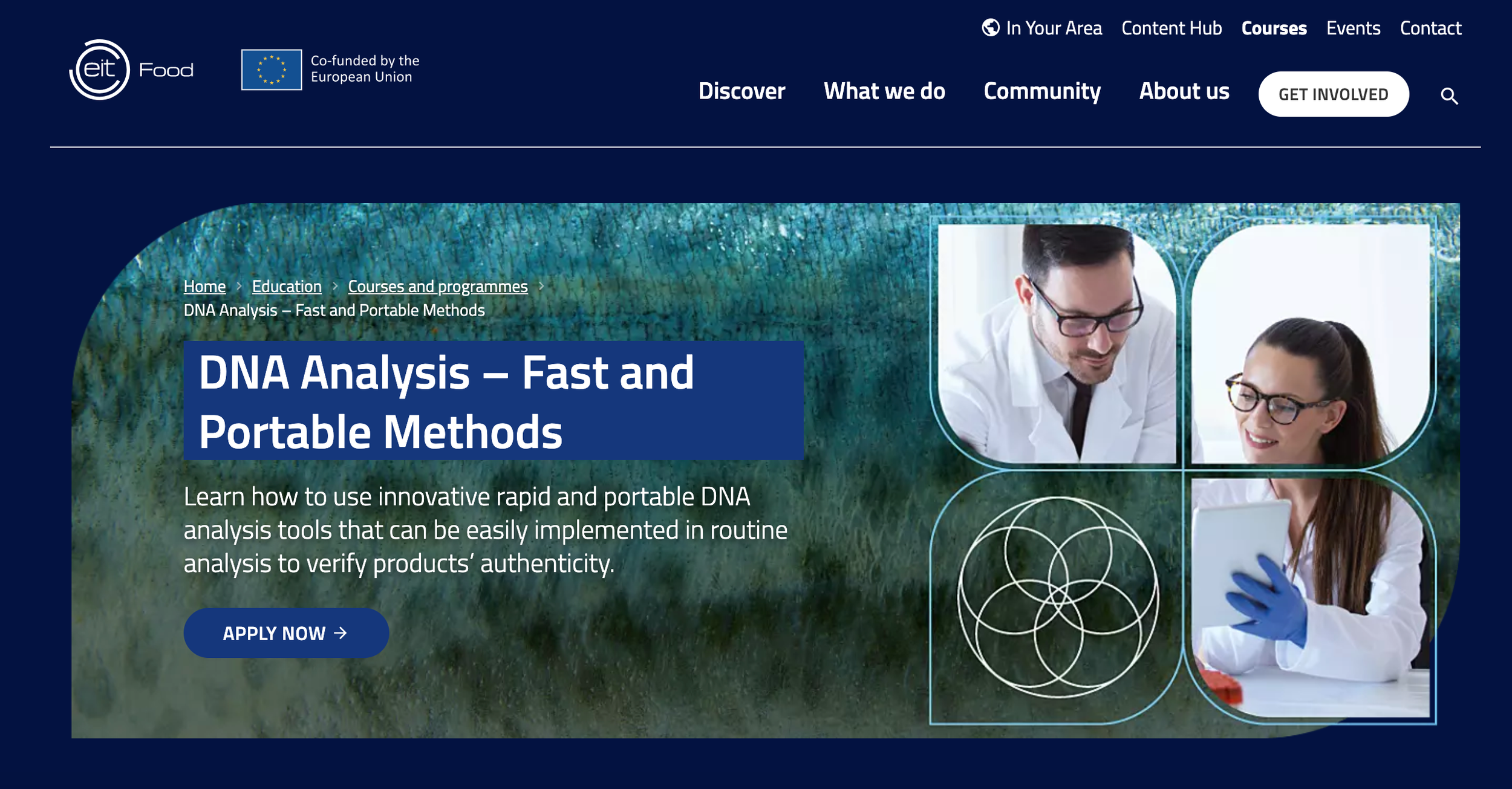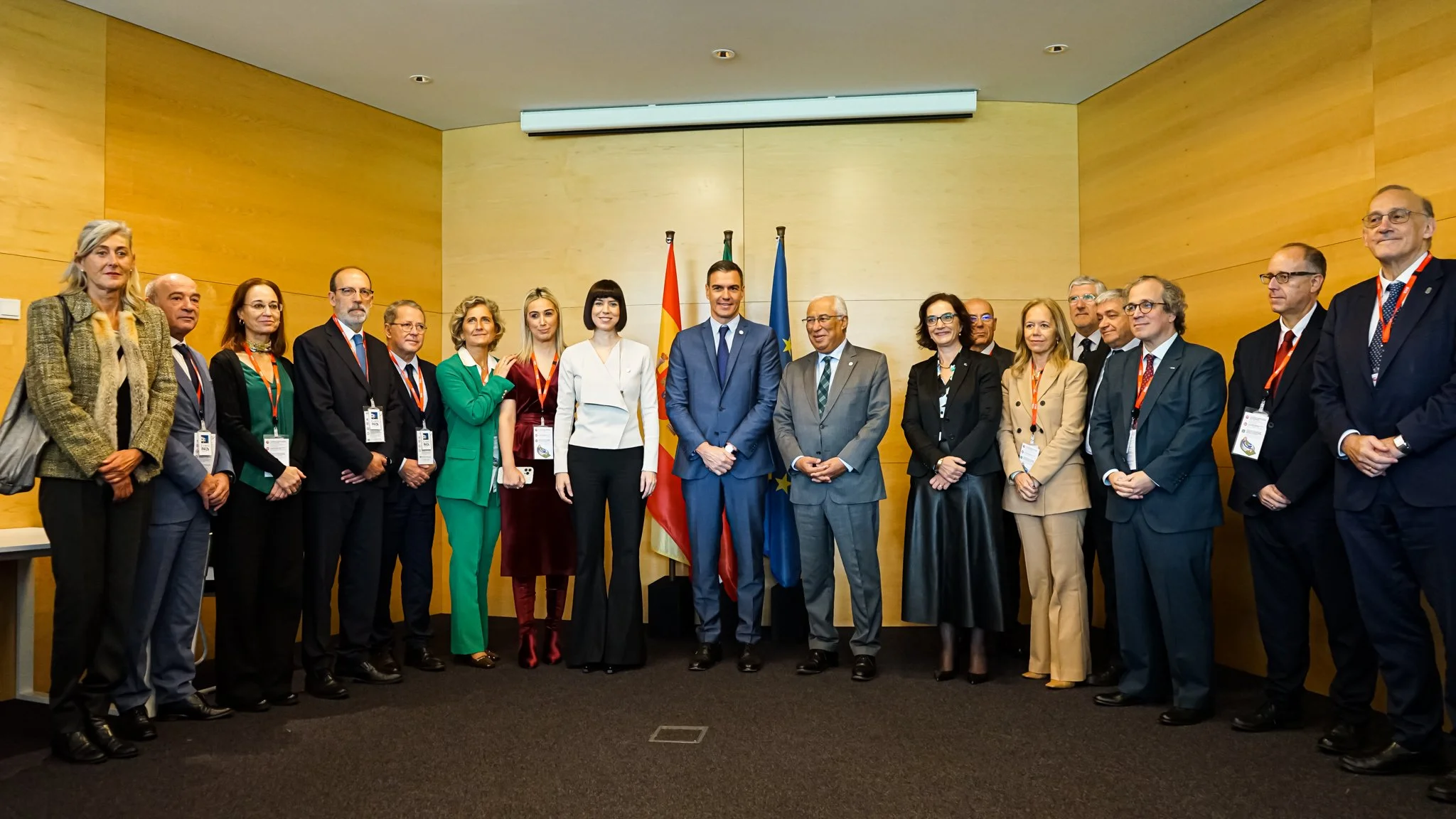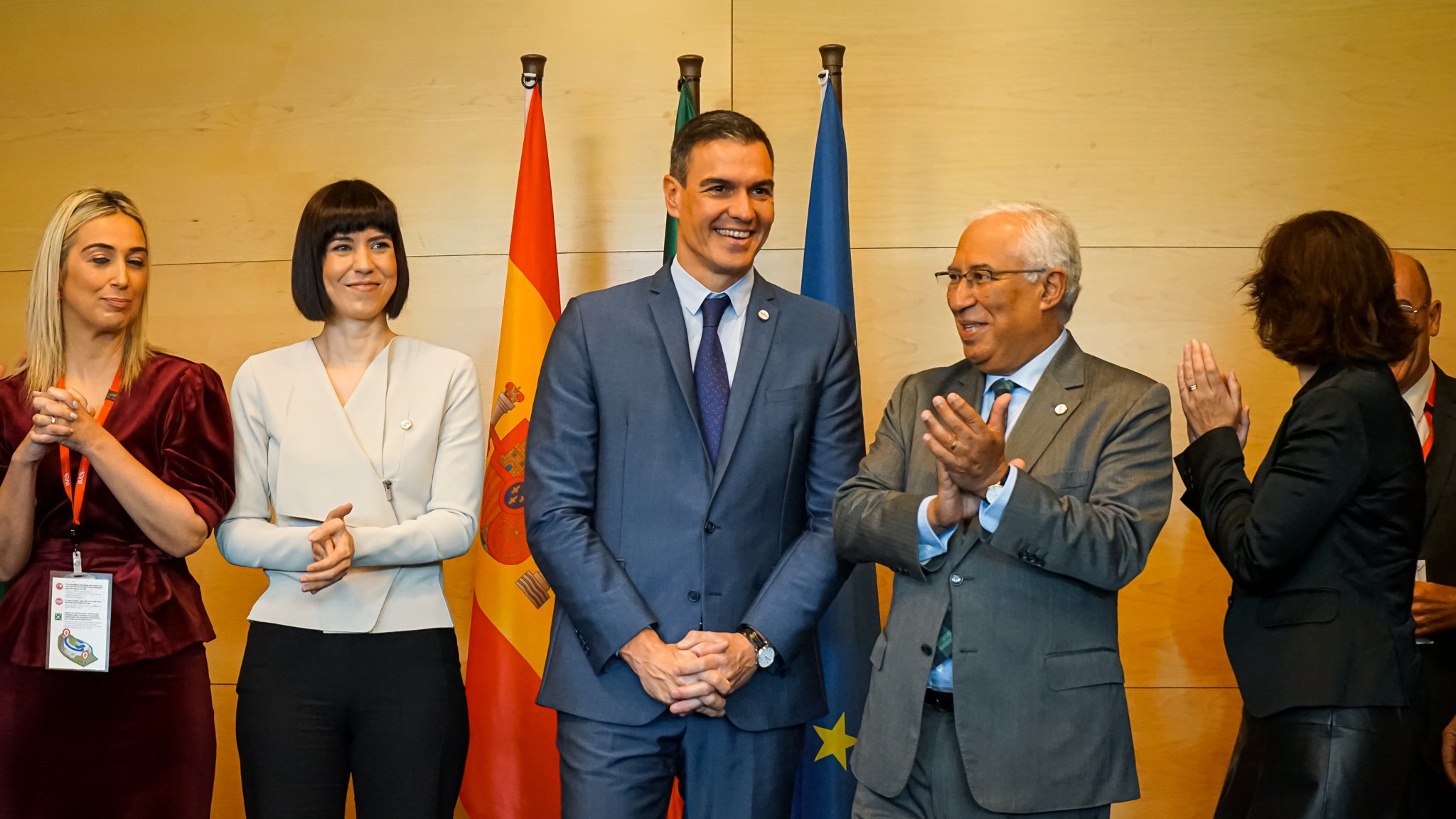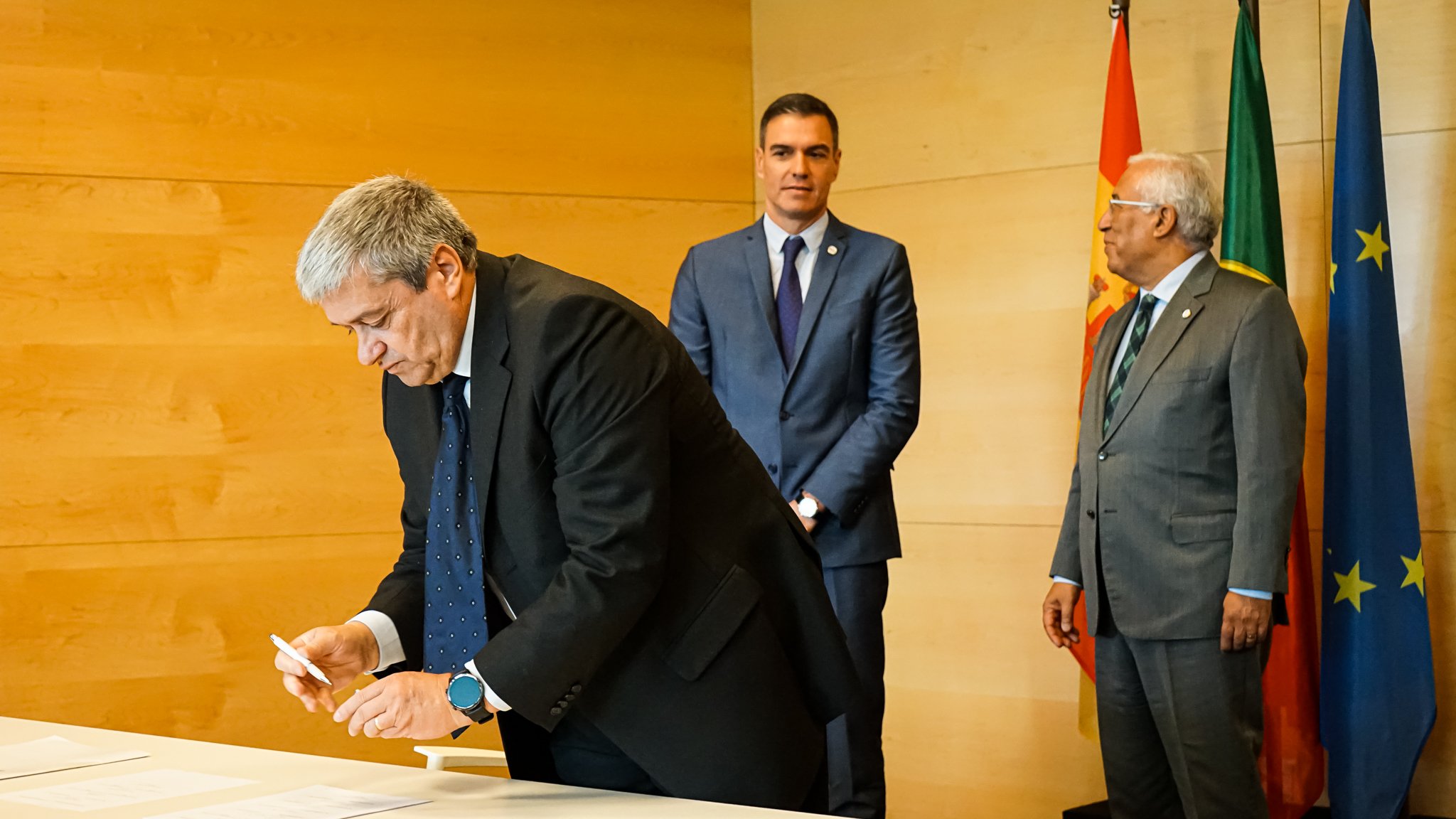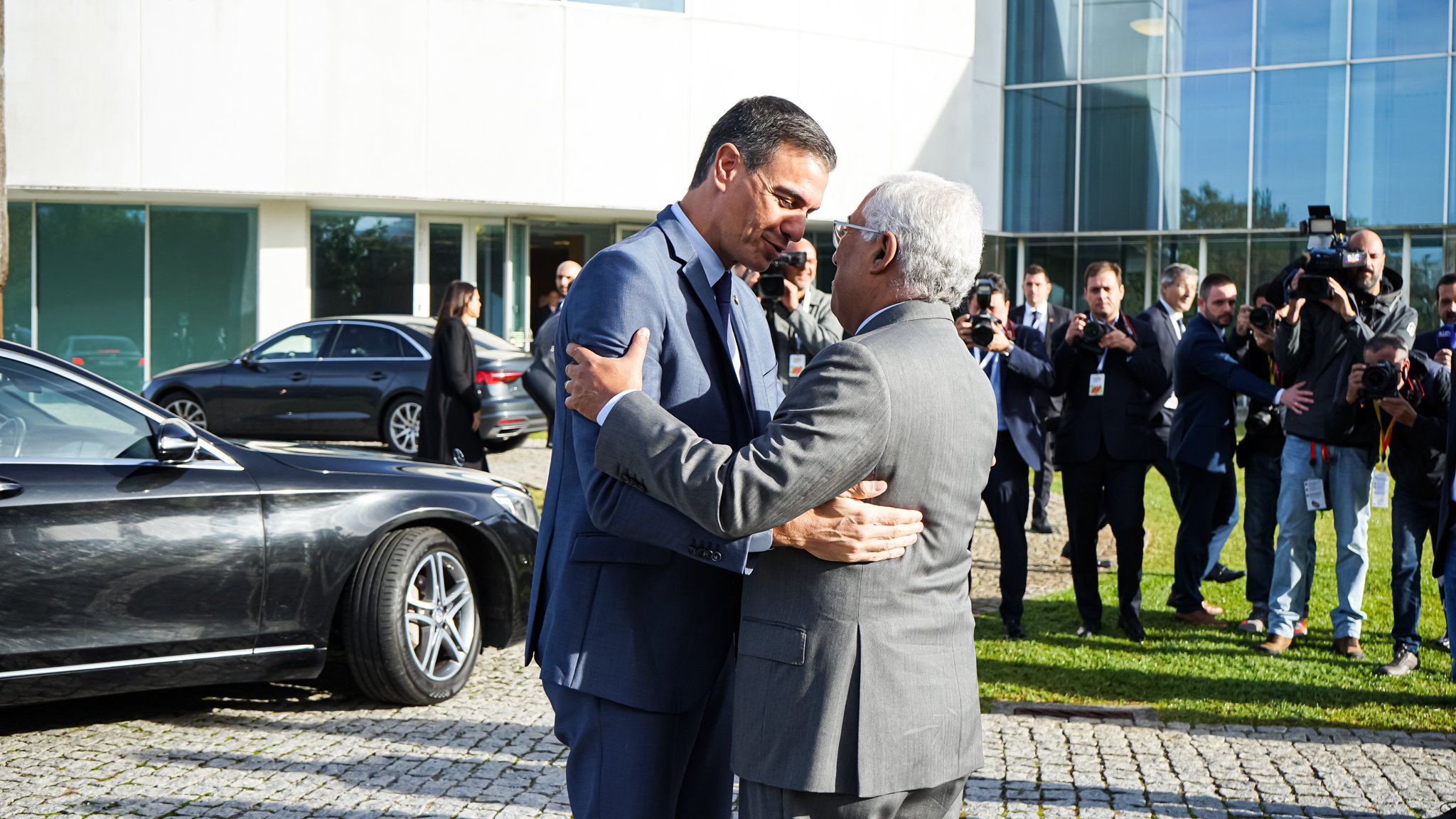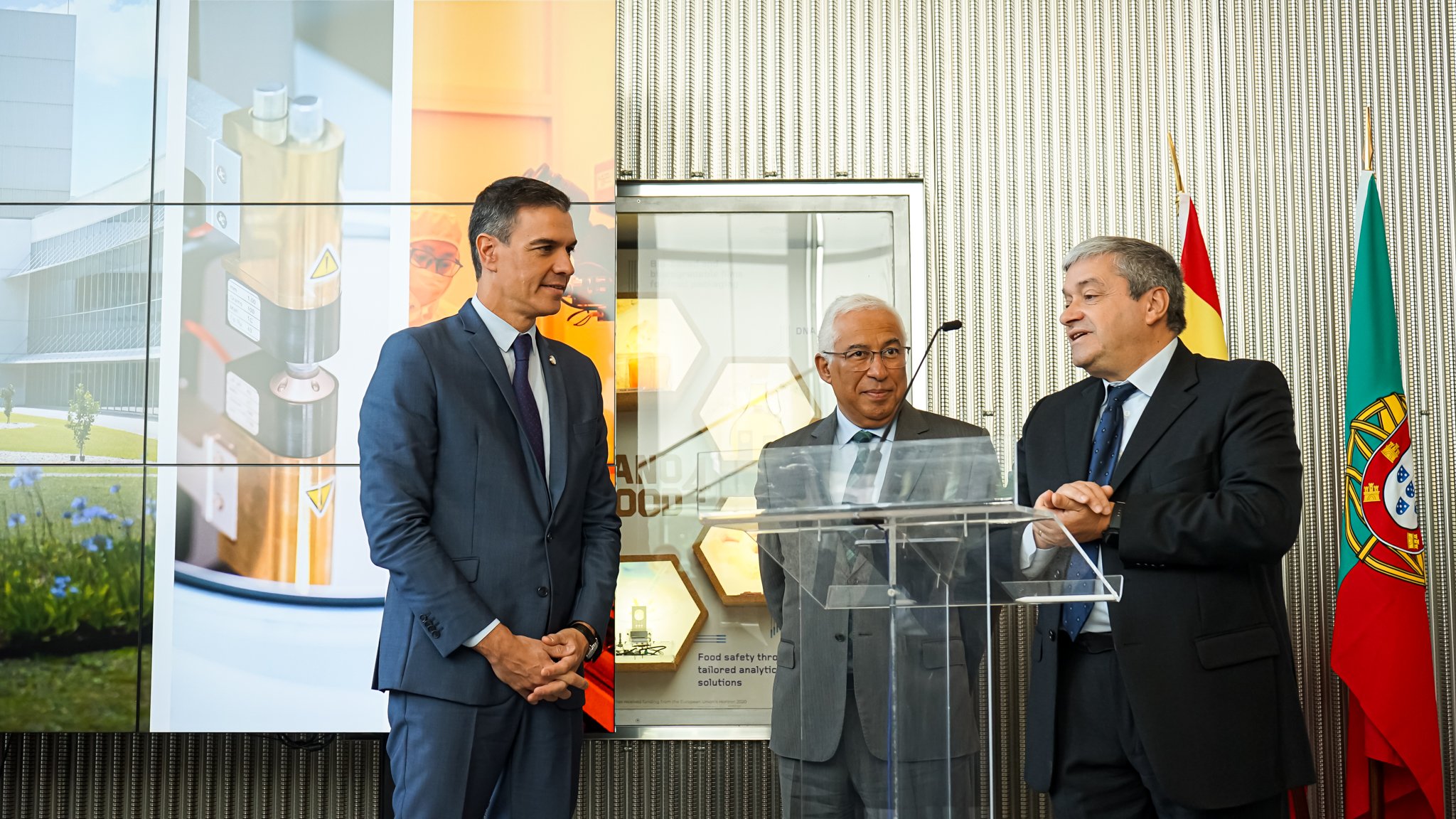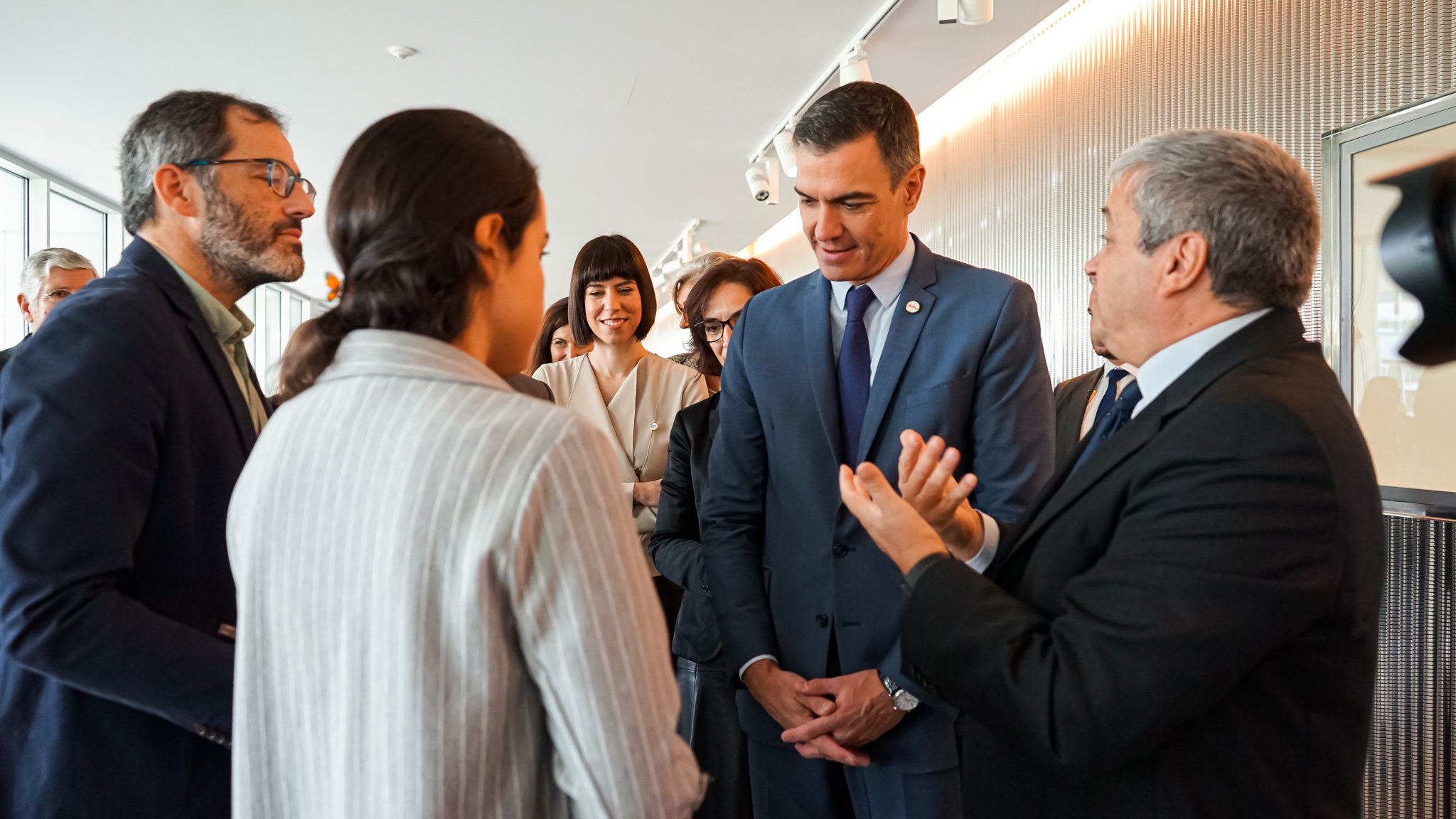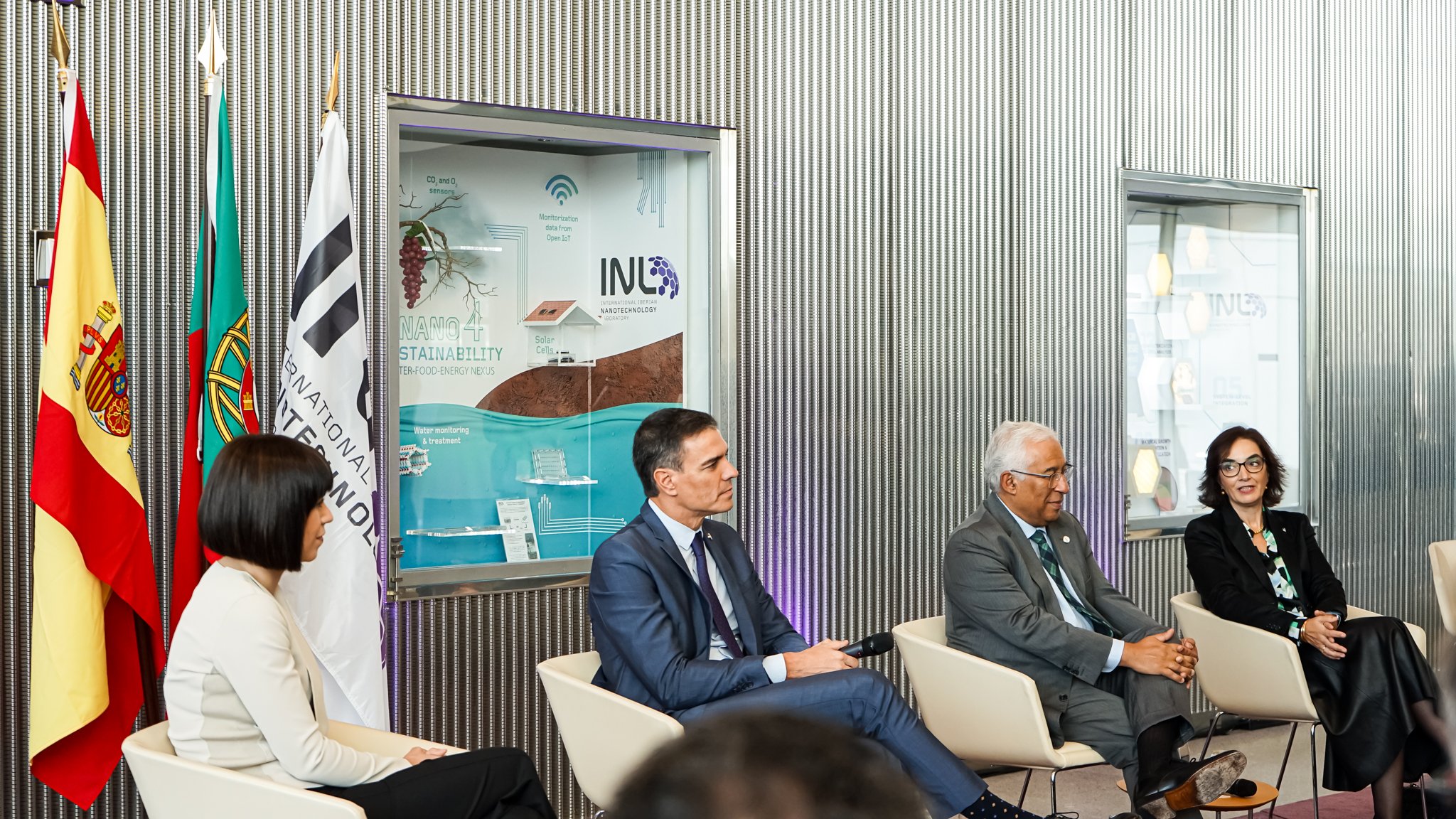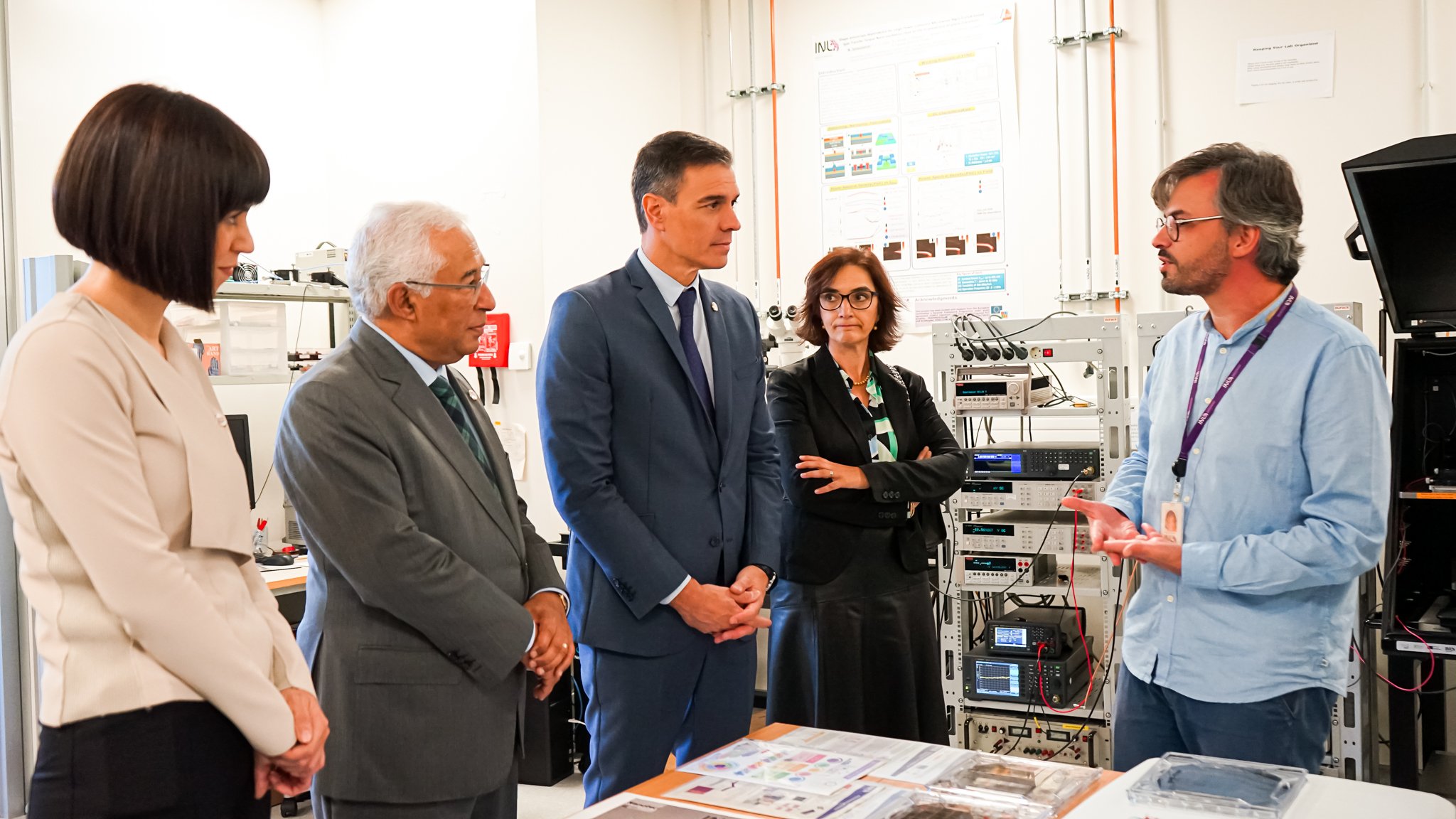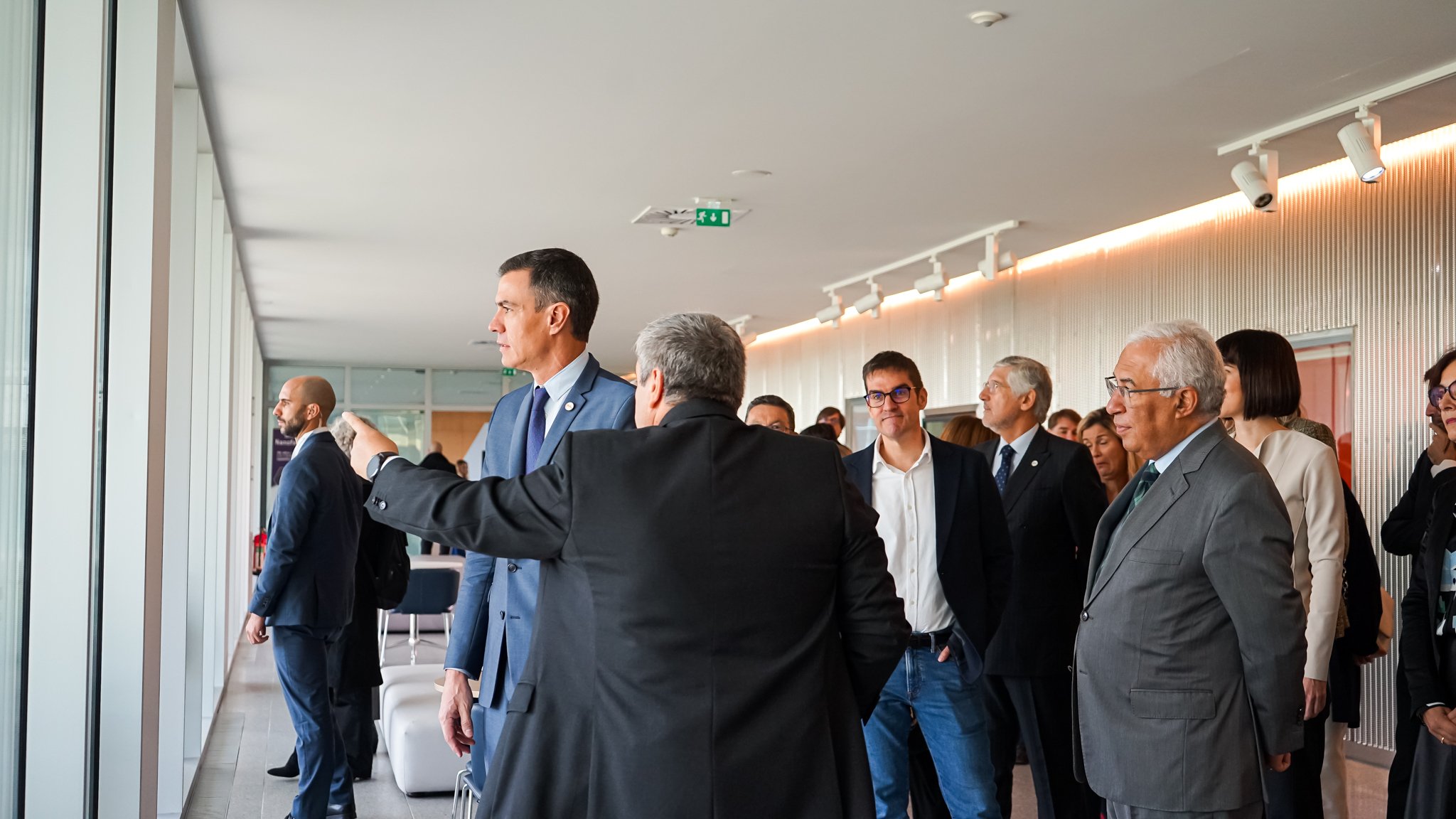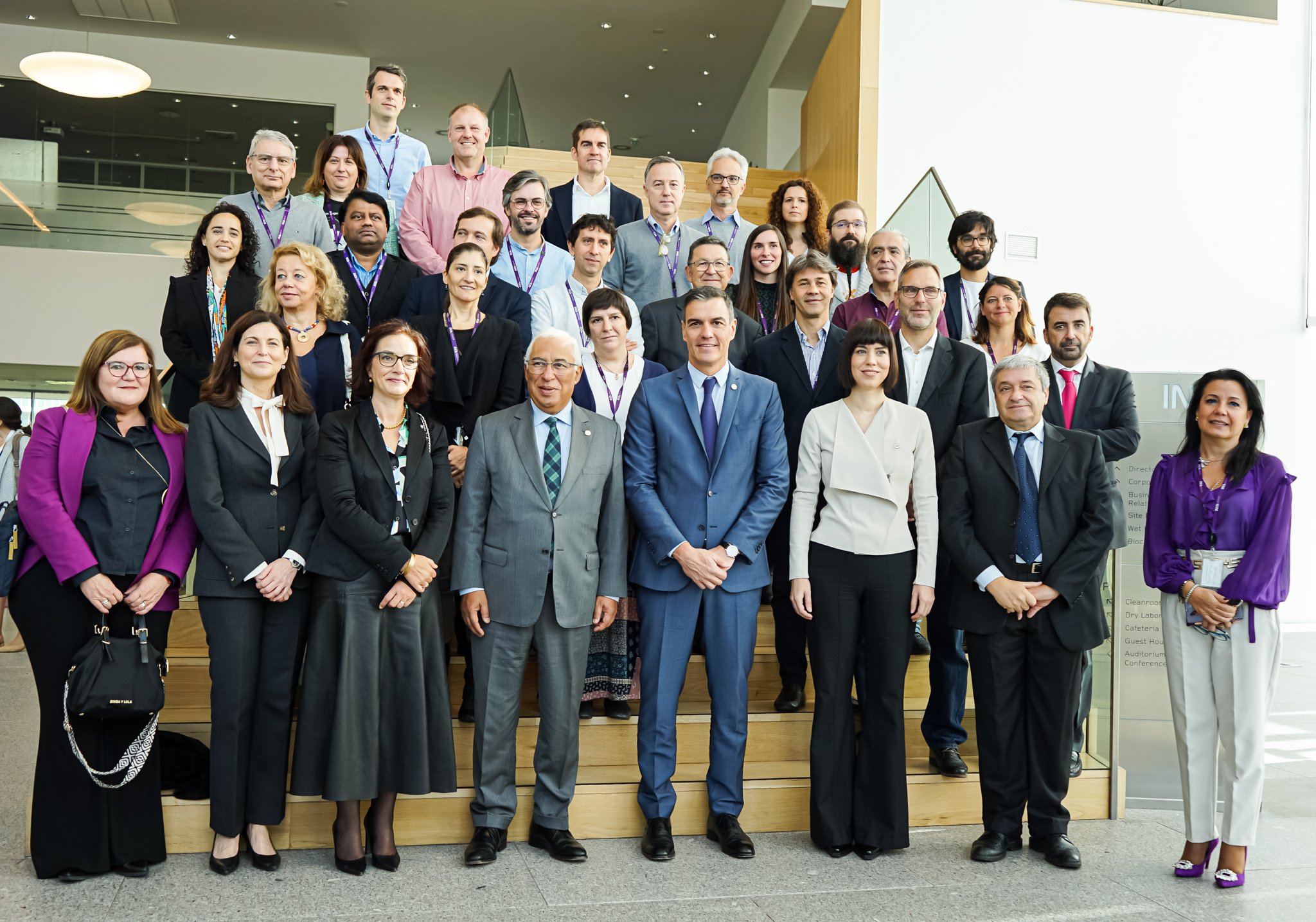Today, February 11, in the “International Day of Women and Girls in Science, we highlight a simple equation: More women and girls in science equals better science,” said UN Secretary-General António Guterres. It’s an important day for promoting equitable access for women and girls in the fields of Science, Technology, Engineering and Mathematics (STEM).
Education research clearly shows that there is tremendous value in having scientists connect with students. When students see that scientists are real people like themselves, they are more likely to participate in science and consider science careers. And by actively promoting science in our everyday lives will empower our children to make informed decisions in the future.
Taking part in the International Day of Women and Girls in Science celebrations and the European Researchers’ Night 2023 initiative, yesterday, female researchers working at INL – International Iberian Nanotechnology Laboratory visited Escola Básica nº 2 de Lamaçães and showcased to the inspiring and interested students what science is all about. During this visit, we counted the participation of the Research Group Leader Begoña Espiña, Research Fellow Bruna Alves, PhD student Sara Resende and the Science Communicator Catarina Moura.
We also take this special day to thank all the women working at INL – International Iberian Nanotechnology Laboratory. Thank you all for making science a journey of enchantment, mystery and discovery. Thank you for your constant work in making INL a more equitable, diverse and inclusive place. Today we celebrate you, your empowerment and your achievements. You are all true role models, never stop being who you are.
And stay tuned, in the upcoming weeks we will shine a spotlight on women in STEM with a new interview series with Women working in/with Science at INL. It’s important to celebrate the amazing contributions women make in science. Happy #WomeninScience day to all.
FUNLAYERS twinning EU project kicks off with a workshop
The Functional Layered Materials for Advanced Applications – FUNLAYERS project consists of a twinning initiative aimed to propel INL’s research excellence in the field of layered materials whilst unfolding its tremendous potential applications for energy storage and spintronics in partnership with two world-class European institutions at the forefront of material science – Consortium for the Construction, Equipping and Exploitation of the Synchrotron Light Source (ALBA-CELLS) and the Max Planck Institute of Microstructure Physics (MPG).
The project kicked off last week in Braga – Portugal, under the coordination of INL – International Iberian Nanotechnology Laboratory together with the other ALBA-CELLS and Max Planck Institute of Microstructure Physics (MPG) teams. The event was a hybrid event, in which the consortium met and discussed the challenges and strategies for the project and how we will work together to strengthen our research in the field of layered materials, capturing future opportunities for joint collaborations in R&I.
During three days FUNLAYERS team organised a workshop and the main goal was to strengthen both the research and the institutional capabilities of INL in the area of Functional Layered Materials and at the same time provide a diagnosis of INL capabilities in two different components – scientific and research management.
On the last day, we were also able to listen to Professor Dr Stuart Parkin – Director of the Max Planck Institute for Microstructure Physics, Halle, Germany, and an Alexander von Humboldt Professor, Martin Luther University, Halle-Wittenberg giving an inspiring talk about his path and work. We heard all about his research interests and the latest developments on spintronic materials and devices for advanced sensors, memory, and logic applications, oxide thin-film heterostructures, topological metals, exotic superconductors, and cognitive devices.
New updates will be shared on the FUNLAYERS website: www.funlayersproject.eu
PITCCH final event happening on March 7, 2023, in Stuttgart, Germany
PITCCH project final event will take place on March 7th, 2023, in Stuttgart, Germany.
The purpose is to present results, share good practices from PITCCH collaborations and provide a stage for companies to debate about open innovation strategies and a panel for funding agencies to discuss support programs.
After the opening session with EISMEA Project Officer, DG GROW Policy Officer and PITCCH Project Coordinator, we will welcome our keynote speaker, John Fahlteich, CEO at KETMarket Open Innovation Ecosystem. We will also have a moment to learn from PITCCH collaboration projects. Good practices from Open Innovation projects will be shared by companies that participated in PITCCH.
The first panel of the day “Making Open Innovation work: perspectives from different stakeholders” will gather PITCCH project participants to discuss OI projects and share insights on the perspective of each player. The second panel “Funding Open Innovation: private and public opportunities” will discuss several funding opportunities, both private and public, which could support an Open Innovation framework. A
Tom Fleming is a leading international expert on the creative economy and will be our event host.
PITCCH seeks to accelerate the market uptake of advanced technologies through different sectors. All PITCCH partners are part of an established network ecosystem of multiple stakeholders, from companies to Technology Centres, from private investors to public authorities, and are involved in many international projects, including EU-funded collaborations. The PITCCH consortium consists of four technology centers, INL, the project coordinator, TNO – Innovation for Life, Steinbeis 2i GmbH (S2i) and RINA, and a digital agency, Vitamina.
DNA Analysis – Fast and Portable Methods Online Training
Marta Prado group leader of the Food Quality and Safety Research Group at INL – International Iberian Nanotechnology Laboratory will host a DNA Analysis – Fast and Portable Methods Training on the 15th and 16th of December 2022 through the EIT Food platform that offers a mix of online learning and in-person courses at different locations across Europe.
This training consists of a two-day course including state-of-the-art knowledge of DNA analysis methods. The programme will include insights into food fraud and possible vulnerabilities, information regarding innovative traceability systems, regulatory requirements regarding product labelling and traceability, information regarding available DNA analysis methods, including rapid and on-site methods, practical work based on real case studies (fish, meat and dairy products, complex food matrices).
DNA Analysis – Fast and Portable Methods training will boost technology management capabilities by improving the ability to use emerging technologies related to DNA analysis, enhancing the competitiveness of your food industry and contributing to better control of traceability and authenticity in food systems.
You’ll be encouraged to implement new analytical systems and create new laboratory control lines. It will contribute to the development and implementation of new solutions, having a direct impact on the problem-solving and critical thinking capability related to food authenticity management.
Feasibility meets economical interest: Open Call Webinar on November 30
FlexFunction2Sustain is pleased to invite you to the webinar “Feasibility meets economical interest”, which will take place on 30th November from 14:00 – 16:00 CET. The event is targeted to start-ups, Small and Medium-sized Enterprises (SMEs) and large industries that want to develop and test novel nano-functionalised plastic and paper membranes and surfaces and to get them ready for the last Open Call cut-off date for application (27th of January 2023).
During the event, the participants will learn important aspects of creating economical relevance in applications and projects, that will sustain the market and establish the interest of partners and investors from the early beginning, to successfully realize and marketize scientific results. Intellectual Property consultants and attorneys from the consortium will advise on the best tools to protect inventions and brand names. In addition to that, the webinar will provide insights on the FlexFunction2Sustain Open Innovation Test Bed offering and details of the Open Call application and selection process.
The detailed agenda can be found HERE. Subscribe to the webinar by completing the registration form under the following LINK. If you have any doubts/questions, you can contact the team at helpdesk@flexfunction2sustain.eu. We’ll be looking forward to supporting your innovative ideas!
INL part of the Iberian FoodTec Lab (IFL)
On 4 November, the INL – International Iberian Nanotechnology Laboratory together with nine Portuguese and Spanish higher education institutions signed a consortium agreement for the creation of the Iberian FoodTec Lab (IFL), a «laboratory of excellence» in the area of food safety.
The Iberian FoodTec Lab «has the mission of implementing a collaborative Iberian agenda to promote multidisciplinary research initiatives, prepare diagnoses on the food situation in Portugal and Spain and contribute to the development and implementation of public policies». With this initiative, it is also intended to «encourage the exchange of experiences, dialogue between academic institutions, companies and international organizations and promote an equitable and healthy sustainable diet, contributing to the increase of international competitiveness».
The agreement was signed at the INL – International Iberian Nanotechnology Laboratory, within the scope of the 33rd Luso-Iberian Summit, an event that took place in Viana do Castelo. This agreement was signed by the Polytechnic of Bragança – where the IFL’s headquarters will be located –, the Polytechnic of Viana do Castelo, INL – International Iberian Nanotechnology Laboratory, University of Vigo, University of Salamanca, University of Valladolid, the University of Minho, Portuguese Catholic University, University of Porto, and the University of Trás-os-Montes and Alto Douro.
According to Lorenzo Pastrana, Lorenzo Pastrana Research Group Leader at INL, “the agri-food sector represents, on average, 15% of the GDP in the northwest of the Iberian peninsula. Moreover, in these regions, intense activity in R&D and innovation is being carried out in different entities of the scientific and technological ecosystem, delivering excellent performance indications in many scientific ranks. The Iberian FoodTec Lab (IFL) was born to enhance knowledge in food and health and boost the transfer to the productive sector. For this purpose, the leading Universities in the region and the INL will join and coordinate capabilities to generate impact in the food sector. INL is one of the founders of this initiative that will allow the Food for the Future cluster, to foster the implementation of their applications of nanotechnologies to produce personalized, healthier and safer foods and reduce food waste.“
Pedro Sanchéz, President of the Government of Spain and António Costa, Portuguese Prime Minister visit INL
Pedro Sanchéz, President of the Government of Spain and António Costa, Portuguese Prime Minister, together with Minister of Science, Technology and Higher Education, Professor Elvira Fortunato, and the Minister of Science and Innovation of Spain, Diana Morant visited INL today under the opening of the 33rd Portuguese-Spanish Summit that is being held in Viana do Castelo.
According to the Prime Minister, “Minho is a border region which will allow us to better understand its potential. The commitment that the European Union has made regarding the effort to relocate many of the activities previously outsourced to other regions of the world in Europe, as well as the commitment to shorten value chains, and invest in the “re-industrialization” effort, is of immense complexity”.
“This effort cannot stop at Eastern Europe or Central Europe. We must have in Portugal and Spain the ability to play a crucial role”, he warned.
From the perspective of António Costa, Portugal and Spain “have the resources for this and have a unique geographical position in a more autonomous Europe that is also more open to the world”.
In the words of Pedro Sanchéz, President of the Government of Spain “we want science and innovation to contribute to transforming the economy, generating wealth and greater quality employment”.
During this visit, INL’s work was highlighted and viewed as an example of excellence in innovation, founded by the Governments of Portugal and Spain.
Next Page » « Previous Page -->Pedro Sanchéz, President of the Government of Spain and António Costa, Portuguese Prime Minister, together with Minister of Science, Technology and Higher Education, Professor Elvira Fortunato, and the Minister of Science and Innovation of Spain, Diana Morant visited INL today under the opening of the 33rd Portuguese-Spanish Summit that is being held in Viana do Castelo.
According to the Prime Minister, “Minho is a border region which will allow us to better understand its potential. The commitment that the European Union has made regarding the effort to relocate many of the activities previously outsourced to other regions of the world in Europe, as well as the commitment to shorten value chains, and invest in the “re-industrialization” effort, is of immense complexity”.
“This effort cannot stop at Eastern Europe or Central Europe. We must have in Portugal and Spain the ability to play a crucial role”, he warned.
From the perspective of António Costa, Portugal and Spain “have the resources for this and have a unique geographical position in a more autonomous Europe that is also more open to the world”.
In the words of Pedro Sanchéz, President of the Government of Spain “we want science and innovation to contribute to transforming the economy, generating wealth and greater quality employment”.
During this visit, INL’s work was highlighted and viewed as an example of excellence in innovation, founded by the Governments of Portugal and Spain.
